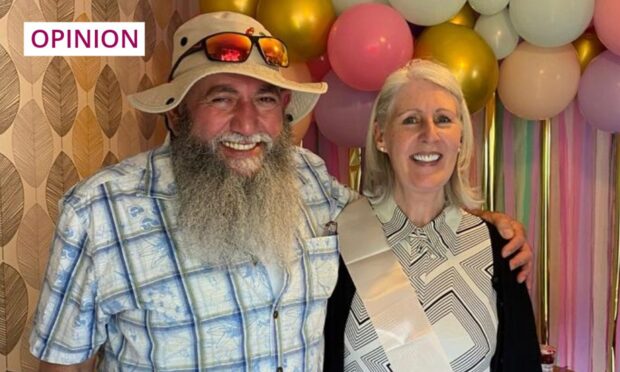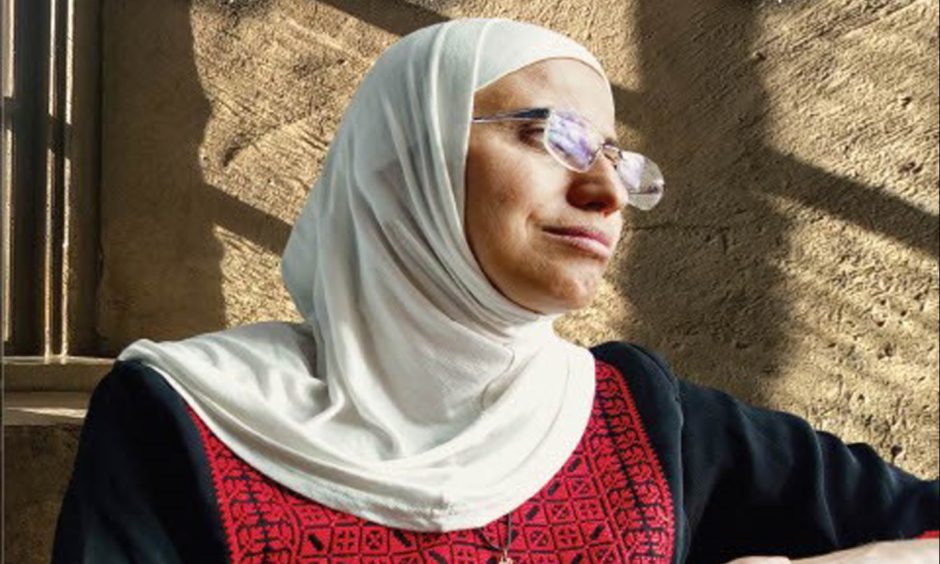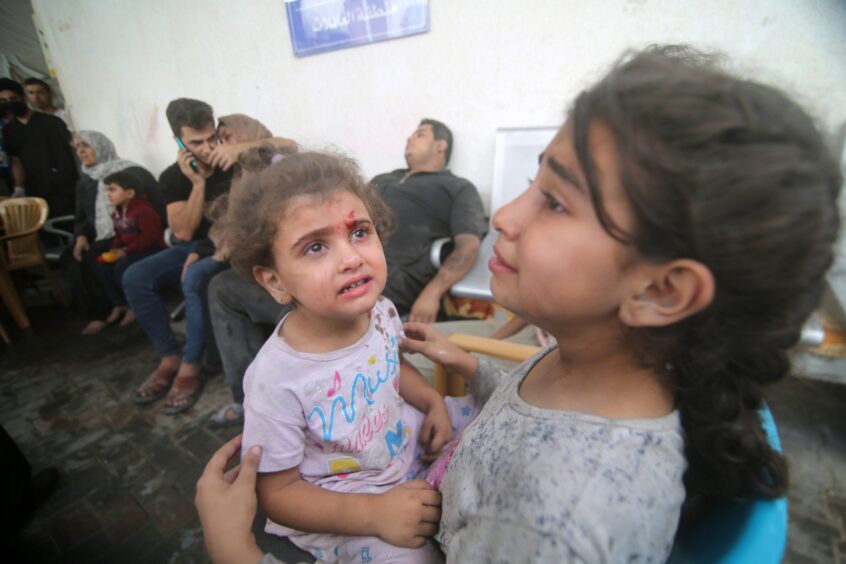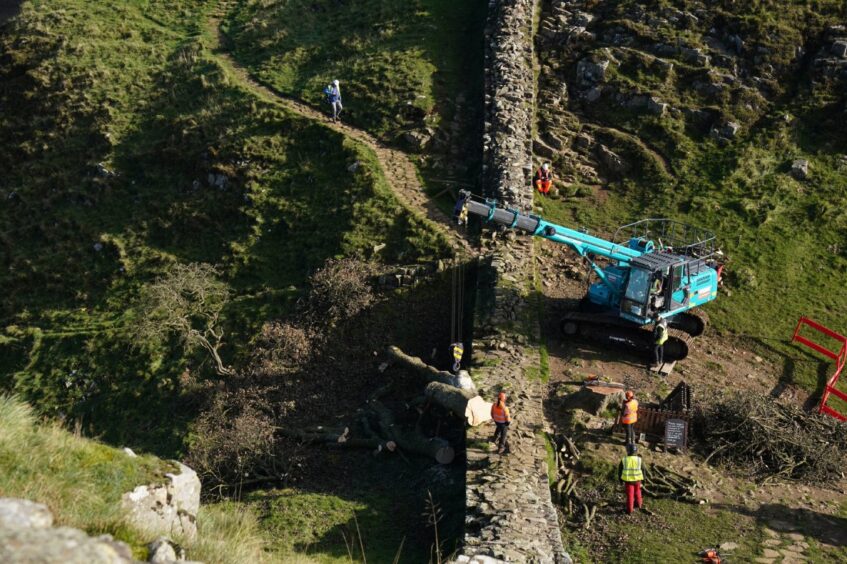Being married to an Irish poet has its joys as well as its challenges.
I’m sure Yeats’s missus said at some point: “I couldn’t give a monkey’s about your Nobel Prize, can you figure out where this third recycling bin is supposed to go?”
This week the challenge in our house was to organise a trip to London so my husband can attend the Palestine Book Awards.
A collection he published by the Palestinian poet Dareen Tatour has been shortlisted.
Decisions, decisions
Should he fly to Heathrow or Gatwick? Should he take the 10.35am British Airways flight from Aberdeen or the 8.45am with easyJet, assuming there are no more cancellations to Luton?
Should he go for one night or two? Should he attend the round-table discussion? Should he stay at the Hilton where the awards are being held or the Travelodge?
The author, Dareen, has far fewer choices in life, and that’s before the latest events in Israel and Gaza.
She was jailed in 2016 in Israel for writing a poem and released following an international outcry.
Publishing her book, My Threatening Poem: The Memoir of a Poet in Occupation Prisons, involved faltering phonecalls from our kitchen in Aberdeenshire to an anonymous translator in the West Bank.
Her subsequent poetry volume, I Sing From The Window of Exile, is up for an award, but Dareen is yet to hold her own book in her hands, let alone a prize.
Copies of the collection, sent to her via a PO box in Jerusalem, did not arrive despite meticulous attention to postal requirements at this end.
It’s frustrating enough juggling packages at Stonehaven’s so-called Post Office at the back of a busy petrol station, without wondering if they’ll reach their destination.
Still, everyone does their best.
Pulitzer Prize winners make a stand
Among the numerous individuals and organisations, such as PEN International who called for Dareen’s release from jail, were 300 prominent writers including 11 Pulitzer Prize winners.
“Look Jacq, I’ve got an email from Noam Chomsky,” my husband said one morning, to which I replied: “Can you move the car before the harbour festival kicks off so I can go to Asda?”
Someone’s got to man the domestic fort.
How a publisher in north-east Scotland could end up bringing to the English-speaking world the work of a Palestinian poet, is a tale of compassion, determination and conscience.
It is also a story of the interconnected nature of people worldwide. Truly, no man or woman is an island. Our lives intertwine beyond borders and backgrounds.
First minister’s in-laws trapped
First Minister Humza Yousaf is himself caught up in events and released a tearful video update from his mother-in-law, trapped in southern Gaza amid the Israeli bombardment.
His wife Nadia’s parents, Elizabeth and Maged El-Nakla, are British citizens and live in Dundee, but had gone to visit family.
This is Elizabeth El-Nakla. She is my mother-in-law. A retired nurse from Dundee, Scotland. She, like the vast majority of people in Gaza, has nothing to do with Hamas. She has been told to leave Gaza but, like the rest of the population, is trapped with nowhere to go. pic.twitter.com/D3ZUtnEmyO
— Humza Yousaf (@HumzaYousaf) October 13, 2023
They became trapped after Hamas launched attacks on Israel which responded with bombs and a total blockade of the Gaza Strip, including cutting off the water.
Warning it would be her last video, Elizabeth said: “Everyone in Gaza is moving towards where we are. One million people, no food, no water. Still they are bombing them as they leave.”
The news has been heart-breaking and I had to switch between channels to get a balanced view.
At one point I landed on the story about the Sycamore Gap tree being lifted away from Hadrian’s Wall after it was felled in an alleged act of vandalism.
I had been upset about this tree, but more recent events changed my perspective.
As I fretted over innocents either already dead or in mortal peril on both sides of the conflict, I looked numbly at images of the great sycamore and thought: All this anguish, all this coverage, for a tree.
A message of hope
Then another story caught my eye, with an expert from the National Trust saying “coppicing” the tree had in fact prolonged its life.
It won’t look the same, but there is every chance the stump will regrow, and sycamores are good at that apparently.
There’s a message of hope there for every tale of adversity, major or comparatively minor.
It could be the rejuvenation of Union Street, the revival of the Belmont Filmhouse, Sir Billy Connolly saying he will never give up performing despite having Parkinson’s, solving the connectivity crisis in the Western Isles or finding a path to peace.
It may not look the same, but if it’s a way to live, it doesn’t really have to.






Conversation